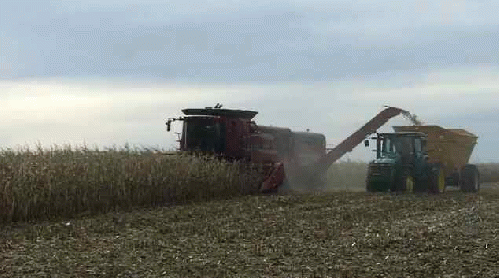Deregulation of GM Corn for Ethanol ... A Bad Idea Just Got Worse
In his State of the Union address in 2007, President George W. Bush called for a 20% decrease in gasoline usage within ten years. The result was the Energy Independence and Security Act of 2007. In order to make this happen a mandatory fuel standard requiring 35 billion gallons of renewable and alternative fuel be produced by 2017. Corn ethanol was the chosen solution and along with the creation of the Renewable Fuel Standard Program (RFS) two bills were passed by congress addressing energy independence. The bills also provided support for farmers who grew crops necessary for ethanol production. This support in the form of subsidies for farmers provided the money and incentive to make the ethanol program viable since Growing corn for fuel consumes more fuel than it produces! Without the government paying farmers to grow corn solely for the production of ethanol, the entire industry would fail. By mandating that gasoline companies include 10% ethanol in their gasoline, the government insured a market for ethanol and the infrastructure that produces it.
Fast forward to 2011.
This bad idea was made even worse recently when the USDA deregulated Genetically Modified Corn specifically designed for the production of ethanol.
(This new corn contains a microbial gene that causes it to produce an enzyme that breaks down corn starch into sugar. Ethanol manufacturers currently buy this enzyme, called alpha amylase, in liquid form and add it to the corn at the start of their production process. Having the new GM corn make its own enzyme for its own breakdown will increase ethanol output while reducing the use of water, energy and chemicals in the production process.)
The new GM corn was developed solely for the production of fuel with little regard for its possible impact on corn grown for food. You see, once the GM corn is planted, it can not be stopped from cross-pollinating with varieties currently grown for food. Syngenta is the company that developed the Genetically Modified Corn. According to NAMA (North American Millers' Association) Syngenta's own scientific data released last month showed that "if this corn is co-mingled with other corn, it will have significant adverse impacts on food product quality and performance."
But Genetically Modified crops are just the beginning of the nightmare that has been unleashed upon the food chain. With inevitable cross pollination, the gene flow of these GM crops into wild, native and organic varieties, (potentially eliminating those varieties,) is the primary long term consequence of increased genetically modified corn cultivation for the production of ethanol. Eliminating crop diversity is a dangerous by-product of this genetic-tinkering and something that should concern every person interested in keeping our food safe.
By making the decision to deregulate this GM corn, the USDA has dismissed all concerns for its safety. Giving the green light to Genetically Modify corn for ethanol production with so little regard for its impact on one of life's basic necessities (food) defies all logic.






